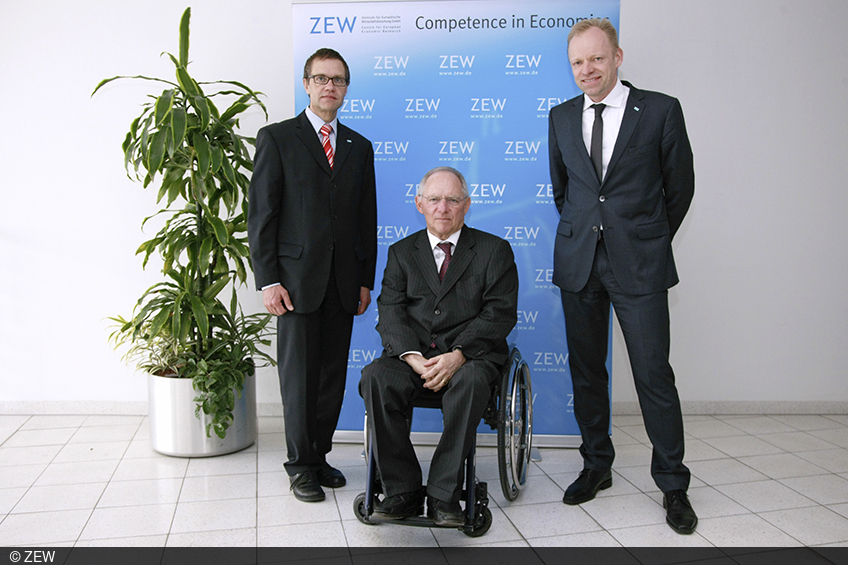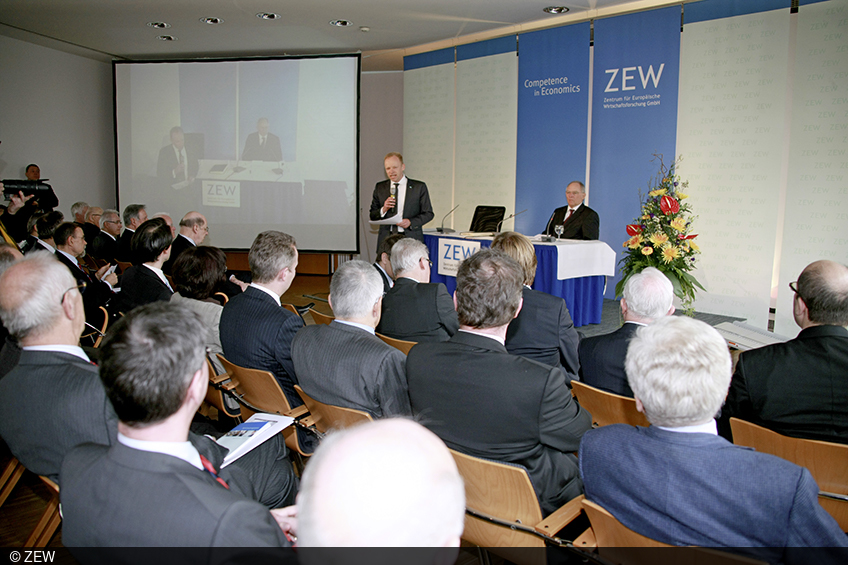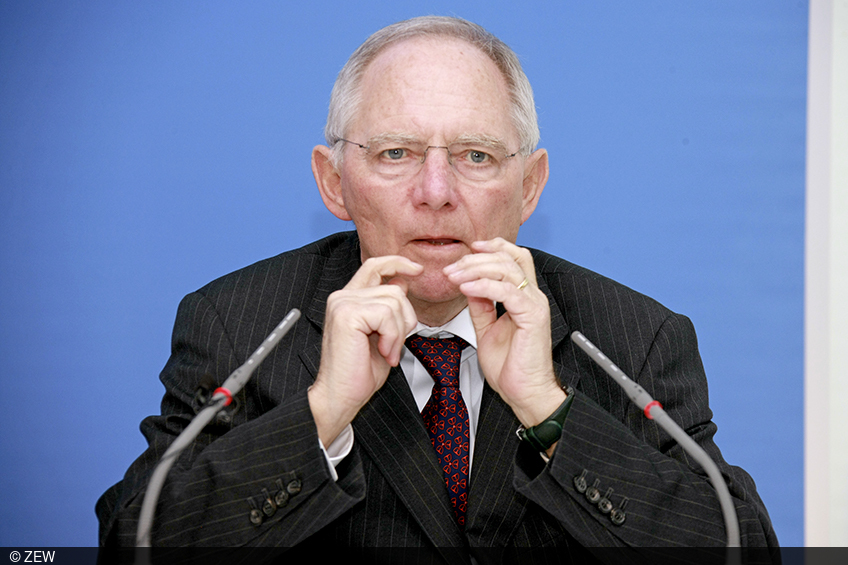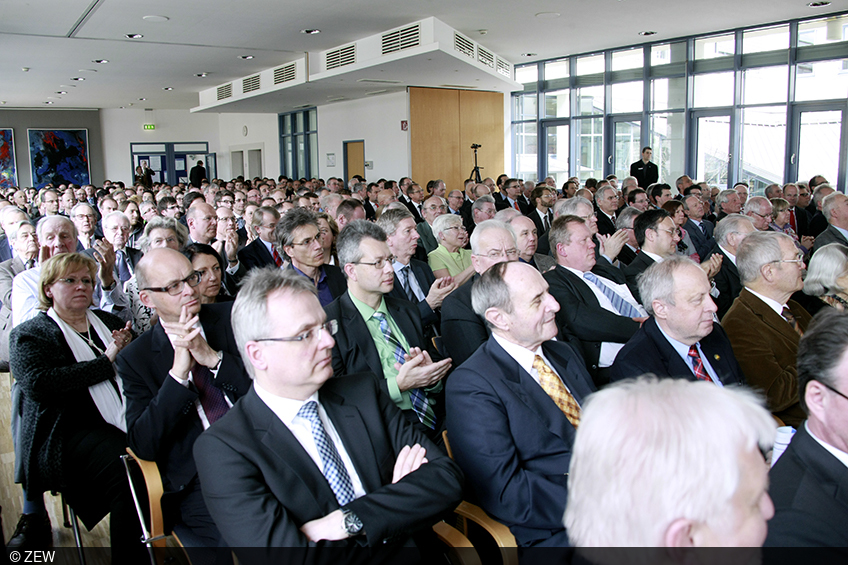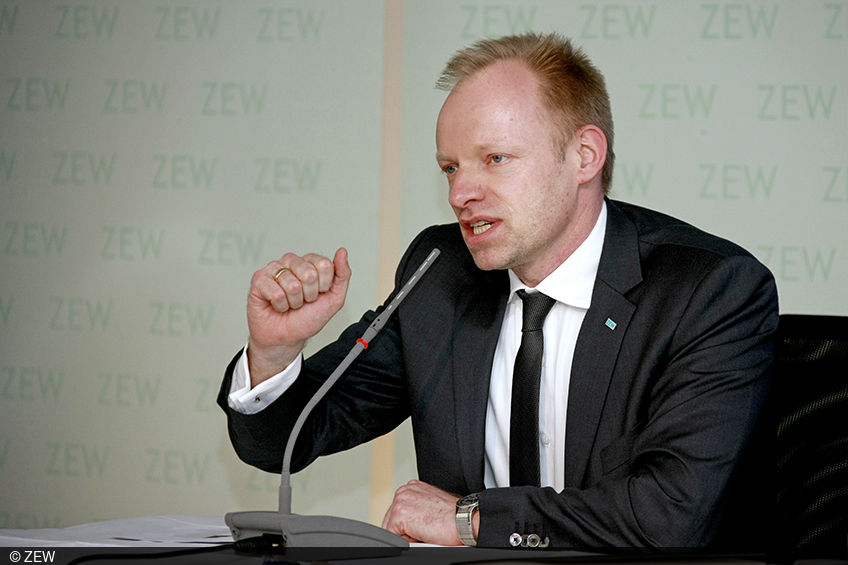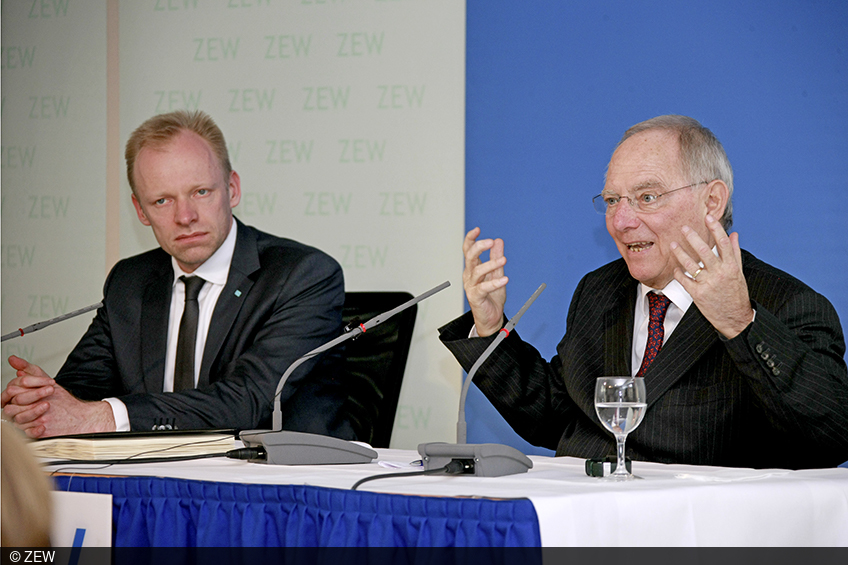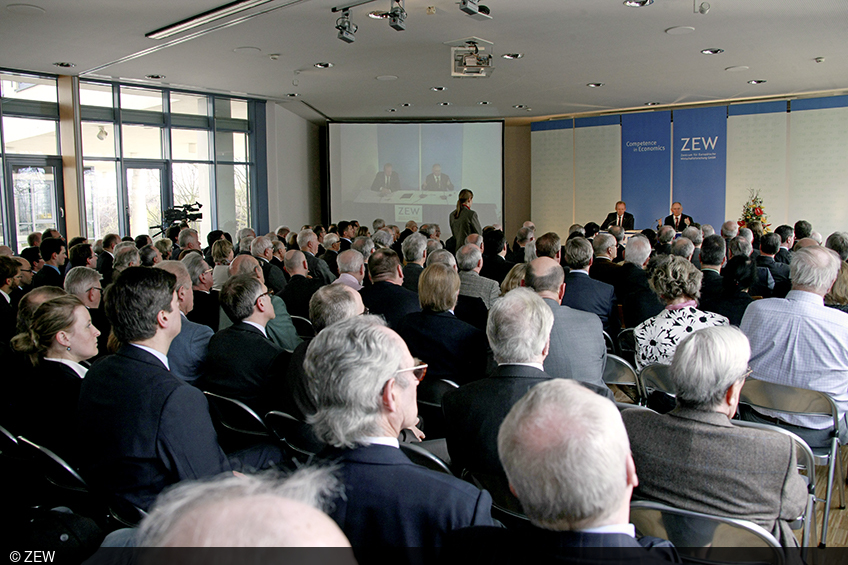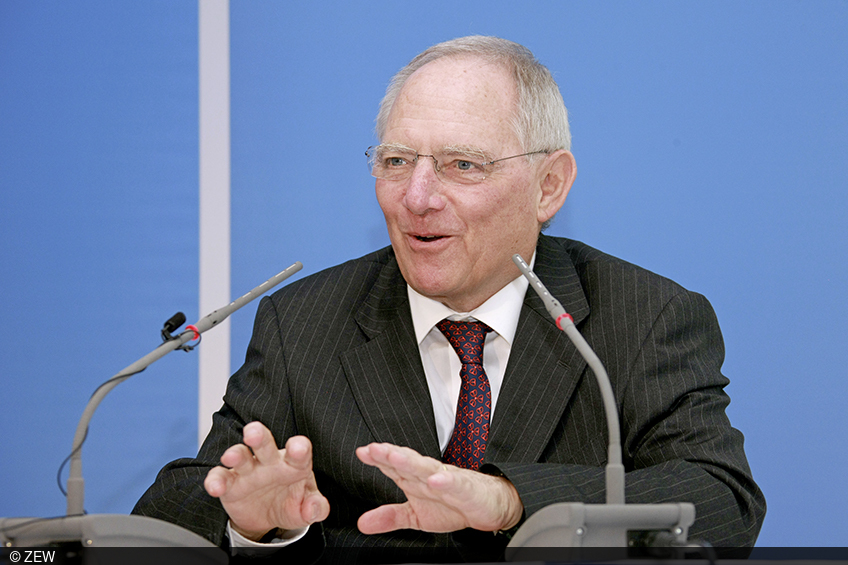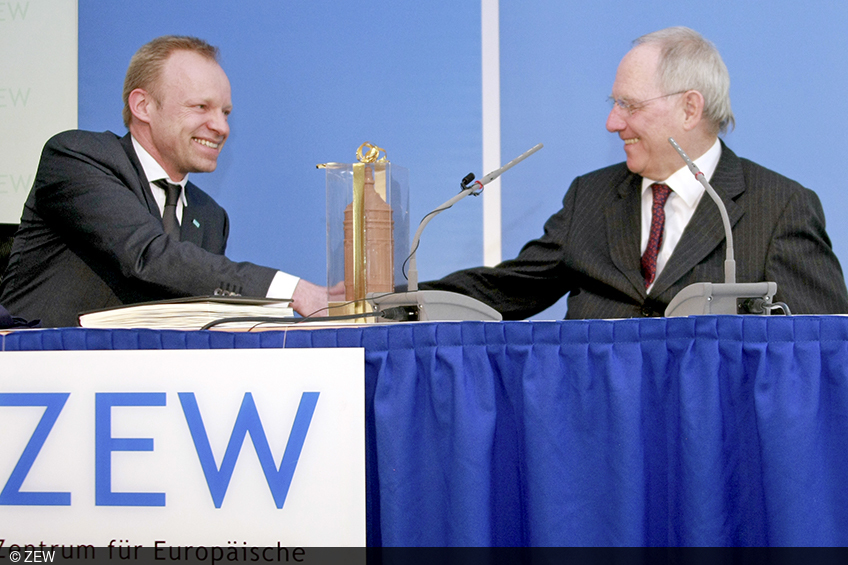"Europe must Press Ahead with Economic Integration" – Wolfgang Schäuble Speaks at ZEW
Public EventsIn a lecture held on 8 April 2013 at ZEW, the German Federal Minister of Finance, Dr. Wolfgang Schäuble, argued that institutional frameworks are key for building a strong European Union. Schäuble appeared as part of the Mannheim Economics and Currency Dialogues, a lecture series supported by the Rhine-Neckar Mannheim Banking Federation that regularly addresses matters of economic import. ZEW’s President, Dr. Clemens Fuest, welcomed some 400 guests at the event.
Schäuble began his lecture by asserting that Germany has been an important anchor of stability during the European debt crisis and a driver of growth in other European countries. According to Schäuble, the stability of the German economy is mostly attributable to its well-functioning institutions. In particular, he pointed to its reliable bureaucratic institutions, which eschew corruption and nepotism, and to its exemplary tariff negotiationsbetween employers and unions. Unlike many other countries, he added, Germany has preserved its industrial sector, rejecting a solely service-based economy. Schäuble stressed that all these factors have been enormously important in creating social cohesion in Germany, as evidenced by (among other things) the fact that no radical party has had lasting success at the German ballot box during the crisis. Schäuble noted that Germany’s “Rhine capitalism” model, distinguished by a socialist market economy with strong social security provisions, has long ceased to be an object of derision abroad.
A Competitive Europe
The Federal Finance Minister emphasized, however, that he does not want a German Europe; what he wants is a competitive Europe. The increasing competitive pressures of globalisation pose major challenges, Schäuble said, such as the extremely high levels of youth unemployment in many parts of Europe. Furthermore, demographic trends make plain that EU countries must plan their future together if they do not want to become economically and politically marginalised. In Schäuble’s opinion, the success of European economic integration requires that countries accept economic decisions made by European institutions and not by their own governments. To this end, he stated that economic policy decisions needed to be "communalised"; after this occurred, it would be possible for the community to assume liability for the debts of individual countries. Schäuble believes that Europe is approaching this goal through painstaking negotiations, and has already taken important steps during the debt crisis. As examples he mentioned the “Sixpack” and the subsequent “Twopack” reforms to the European Growth and Stability Pact, which force eurozone members to practice greater fiscal policy discipline and give European institutions more leeway in responding to states with massive debts.
Yet despite the progress made, Schäuble emphasized that Europe has a long way to go. One area in urgent need of reform he identified is the voting mechanism in the EU Council. He believes that the unanimity principle ought to be re-examined and the process for amending previous European agreements simplified. But considering how much has been achieved over the past few years, Schäuble said he remains very confident. Countries hard hit by the crisis, such as Ireland, Spain, and Greece, have already tackled important reforms and are slowly becoming competitive again. Schäuble was even confident that Cyprus too would eventually come around. In his view, Europe has no reason for resignation. What’s important, he stressed, is that governments continue to persuade Europeans of the benefits of a unified Europe.
